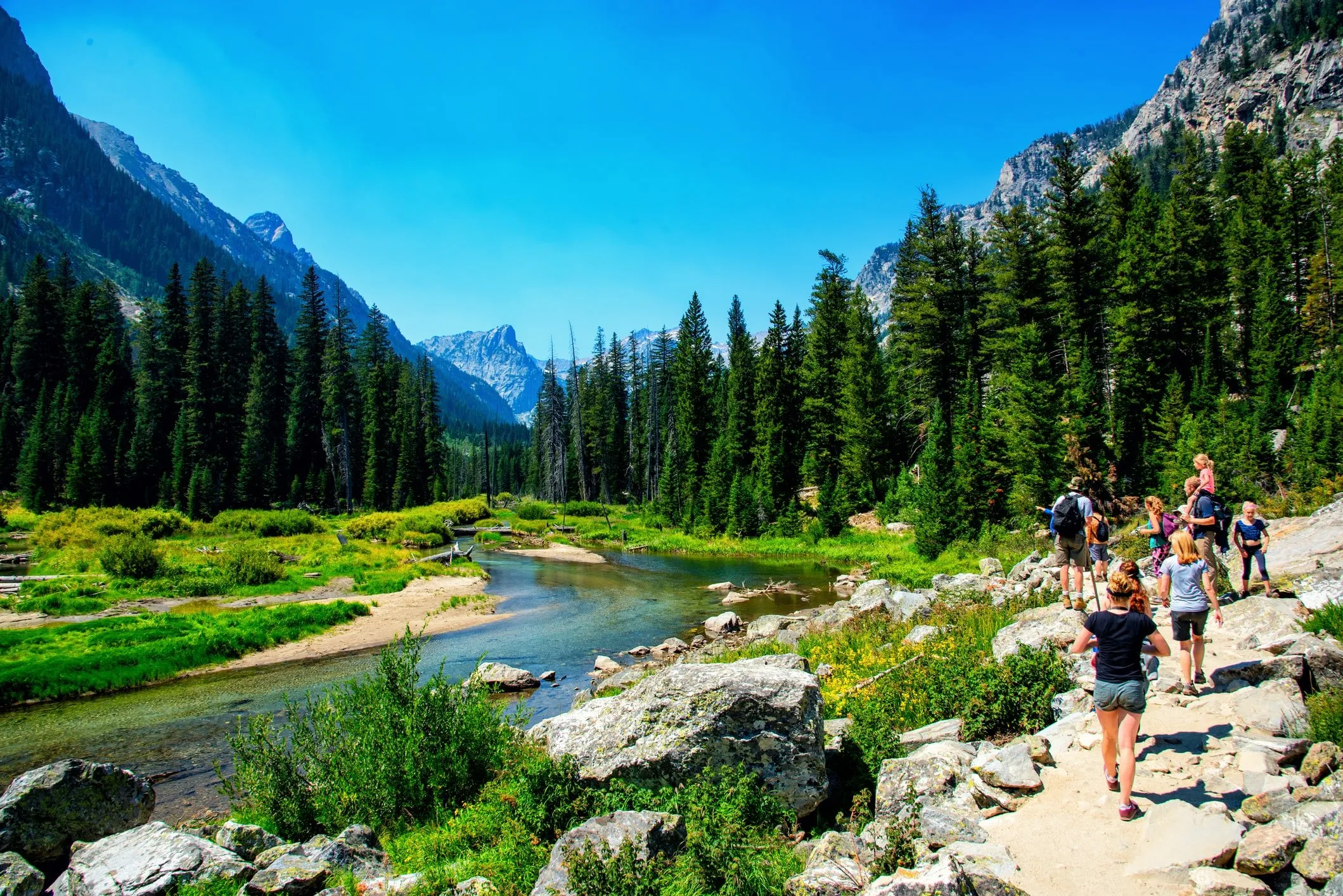
The Complete Guide to Hiking for Beginners: Start Your Outdoor Adventure Today
Discover everything you need to know about hiking for beginners, from choosing your first trail to essential gear recommendations. As someone who has guided hundreds of first-time hikers through their initial outdoor adventures, I'll share practical tips and personal insights to help you start your hiking journey with confidence and safety.
Welcome to Nature Guests, where I help outdoor enthusiasts discover the transformative power of hiking. Over the past decade, I've witnessed countless people take their first steps on mountain trails, and nothing brings me more joy than seeing the wonder in someone's eyes as they reach their first summit. If you're reading this, you're likely considering starting your own hiking journey – and I'm here to guide you every step of the way.
Why Start Hiking for Beginners: The Life-Changing Benefits
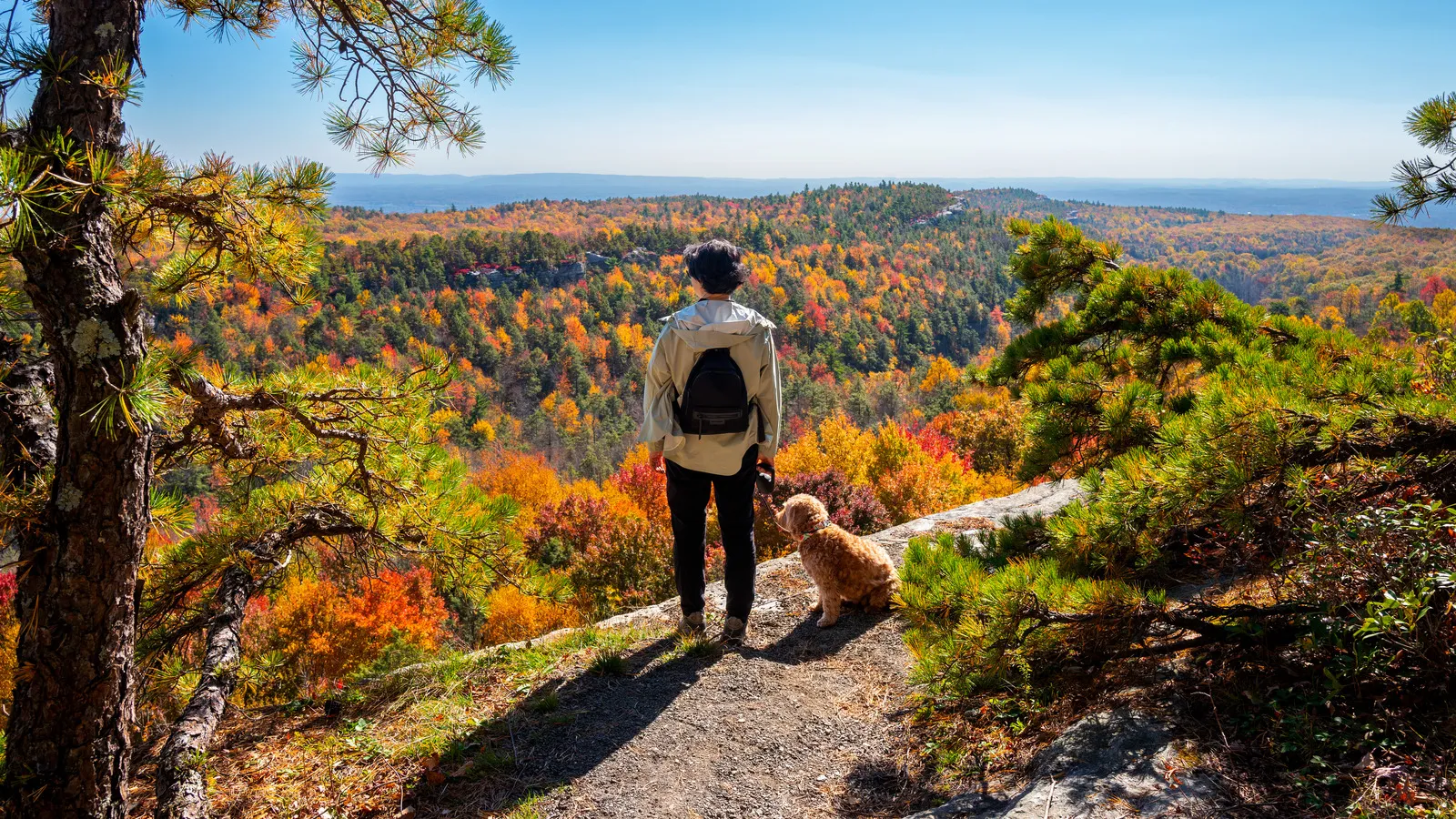
I remember my first hiking experience vividly – I was 22, overweight, and convinced that outdoor adventures were only for "those sporty people." My friend dragged me to a local trail, promising it would be "just a walk in the woods." Three hours later, standing at a breathtaking overlook, I experienced a profound shift in perspective. That moment changed my life, and it's why I'm so passionate about hiking for beginners.
Hiking offers benefits that extend far beyond physical fitness. During my years as a hiking guide, I've witnessed remarkable transformations in people who started as complete beginners. There's Sarah, a software engineer who discovered hiking helped manage her anxiety better than any medication. Then there's Mike, a retiree who found hiking gave him purpose and a community of like-minded adventurers.
Physical and Mental Health Benefits
- Cardiovascular Health: Regular hiking strengthens your heart and improves circulation
- Stress Reduction: Nature immersion significantly lowers cortisol levels
- Improved Sleep: Physical activity and fresh air promote better rest
- Enhanced Mood: Exercise releases endorphins, nature's antidepressant
- Stronger Bones: Weight-bearing exercise helps prevent osteoporosis
What makes hiking particularly appealing for beginners is its accessibility. Unlike many fitness activities that require expensive memberships or specialized skills, hiking for beginners can start with nothing more than a pair of comfortable shoes and a nearby trail. You control the pace, distance, and difficulty level, making it perfect for people of all fitness levels.
Assessing Your Fitness Level: Where to Begin
Before lacing up your boots, it's crucial to honestly assess your current fitness level. I've seen too many enthusiastic beginners bite off more than they can chew, leading to exhaustion, injury, or worse – a complete loss of interest in hiking. The key to successful hiking for beginners is starting where you are, not where you think you should be.
Simple Fitness Assessment for Hiking Beginners
Try this simple test:
- Walk briskly for 30 minutes on flat ground. How do you feel?
- Climb 3-4 flights of stairs. Are you winded?
- Stand on one foot for 30 seconds. How's your balance?
- Do you have any recurring joint pain or medical conditions?
Your answers will guide your trail selection. If you breezed through these tests, you might be ready for moderate trails. If you struggled, start with short, flat paths and gradually build your endurance. Remember, every expert hiker was once a beginner – patience with yourself is crucial for long-term success in hiking for beginners.
Building Your Hiking Fitness
I always tell my beginner clients that hiking fitness is different from gym fitness. While general cardiovascular health helps, hiking-specific conditioning involves different muscle groups and movement patterns. Start incorporating these activities into your routine:
- Stair climbing: Mimics uphill hiking and builds leg strength
- Walking with a loaded backpack: Prepares your body for carrying gear
- Balance exercises: Improves stability on uneven terrain
- Ankle strengthening: Prevents sprains on rocky trails
For more detailed fitness preparation, check out our comprehensive beginner hiking tips guide where I share specific exercises and training routines that have helped thousands of new hikers build confidence and stamina.
Choosing Your First Trail: Setting Yourself Up for Success
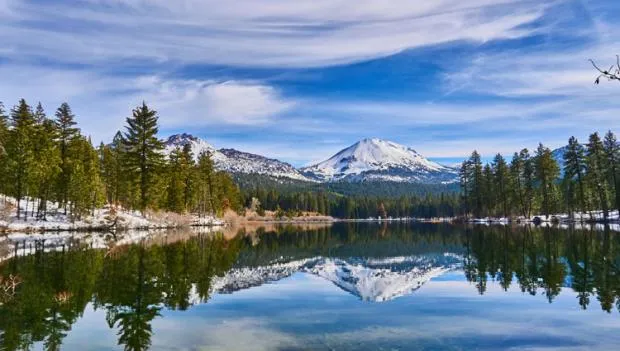
Selecting the right trail for your first hiking experience can make or break your enthusiasm for the sport. I've guided countless groups where proper trail selection meant the difference between participants signing up for more adventures or swearing off hiking forever. When it comes to hiking for beginners, the "easy" trail rating is your best friend.
Understanding Trail Difficulty Ratings
Easy Trails
0-2 miles, minimal elevation gain, well-maintained paths
Moderate Trails
2-5 miles, some hills, possible rough terrain
Difficult Trails
5+ miles, steep climbs, technical terrain
For your first few hikes, stick religiously to "easy" rated trails. I've seen too many ambitious beginners attempt moderate trails on their first outing, only to spend the entire hike struggling and missing the beautiful scenery around them. Hiking for beginners should be about building positive associations with outdoor activities, not testing your limits.
Essential Trail Research Tips
Before heading out, I always research trails thoroughly using multiple sources. AllTrails is my go-to app, but I also check park websites and recent hiking forums for current conditions. Here's what to look for when selecting trails for hiking for beginners:
- Recent reviews: Look for comments about trail conditions and difficulty
- Elevation profile: Avoid trails with steep, sustained climbs
- Loop vs. out-and-back: Loops offer variety; out-and-back trails are more predictable
- Parking and facilities: Ensure adequate parking and restroom access
- Water sources: Know if you'll need to carry all your water
For specific trail recommendations in your area, browse our curated collection of easy hiking trails across the US, where I've personally tested and reviewed beginner-friendly options in all 50 states.
Pro Tip: Start Local
Begin with trails within 30 minutes of your home. This reduces travel stress and makes it easier to build a regular hiking routine. I started my hiking journey on a humble 1.5-mile trail in my local state park – now I've summited peaks on three continents. Every expert started somewhere close to home.
Essential Gear for Hiking Beginners: What You Really Need
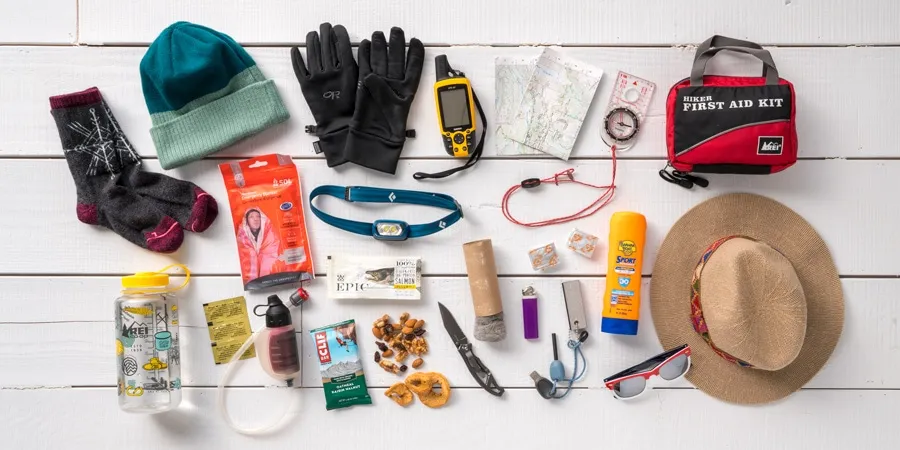
One of the biggest mistakes I see in hiking for beginners is either over-buying expensive gear or under-preparing with inadequate equipment. After guiding hundreds of first-time hikers, I've learned that success comes from having the right essentials, not the most expensive gear. Let me share the exact gear list I give to all my beginner clients.
The "Big Three" for Hiking Beginners
Before diving into extensive gear lists, focus on these three critical items that will make or break your hiking experience:
1. Proper Hiking Footwear
Your feet will thank you for investing in proper hiking boots. After testing dozens of options with beginner groups, I consistently recommend the Columbia Newton Ridge Plus II Waterproof Hiking Boot for newcomers.
🥾 Recommended Hiking Boots
Columbia Newton Ridge Plus II Waterproof Hiking BootWaterproof, supportive, and perfect for beginners • Price: $61.97
Buy on Amazon2. Reliable Daypack
A good daypack is essential for carrying water, snacks, and safety gear. The OIWAS 20L Hiking Backpack has been my go-to recommendation for beginners due to its comfort, durability, and hydration compatibility.
🎒 Recommended Hiking Backpack
OIWAS 20L Water-Resistant Hiking DaypackLightweight, hydration compatible, perfect size for day hikes • Price: $34.89
Buy on Amazon3. Trekking Poles (Highly Recommended)
Many beginners skip trekking poles, thinking they're only for serious hikers. This is a mistake. Poles provide stability, reduce knee strain, and can prevent falls on uneven terrain.
🦯 Recommended Trekking Poles
Trekology Lightweight Cork Grip Trekking PolesAdjustable, lightweight aluminum, comfortable cork grips • Price: $32.99
Buy on AmazonThe Ten Essentials for Day Hiking
Beyond the "big three," every hiker should carry these ten essential items. This list has literally saved lives during my guiding career, and I never hit the trail without these items, no matter how short or easy the hike:
- Navigation: Map, compass, GPS device
- Sun protection: Sunscreen, hat, sunglasses
- Insulation: Extra layers for warmth
- Illumination: Headlamp with extra batteries
- First-aid supplies: Basic medical kit
- Fire: Waterproof matches or lighter
- Repair kit: Duct tape, multi-tool
- Nutrition: Extra food beyond planned meals
- Hydration: Extra water or purification
- Emergency shelter: Space blanket or bivvy
🚑 Complete First Aid Kit
Adventure Medical Sportsman 300 First Aid KitComprehensive kit for outdoor adventures, compact and lightweight • Price: $91.99
Buy on AmazonFor a complete gear breakdown with budget-friendly alternatives, download our detailed beginner hiking checklist that includes printable packing lists for different trail lengths and seasons.
Trail Etiquette and Leave No Trace: Preserving Nature for Future Generations
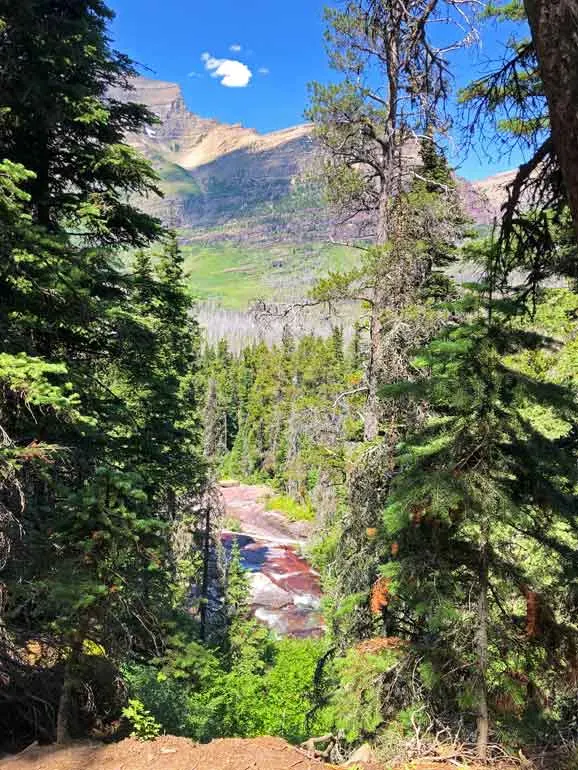
One of the most rewarding aspects of guiding hiking for beginners is teaching people how to be responsible stewards of our natural spaces. Trail etiquette isn't just about being polite – it's about ensuring these beautiful places remain pristine for future generations to enjoy. I've seen firsthand how proper education can transform novice hikers into passionate conservation advocates.
The Seven Leave No Trace Principles
Leave No Trace isn't just a catchy phrase – it's a comprehensive outdoor ethics framework that I teach every group I guide. These seven principles should guide every decision you make on the trail:
- Plan Ahead and Prepare: Research regulations, weather conditions, and group capabilities before hitting the trail.
- Travel and Camp on Durable Surfaces: Stay on established trails and use designated campsites when available.
- Dispose of Waste Properly: Pack out all trash, leftover food, and litter. If you packed it in, pack it out.
- Leave What You Find: Preserve the past by leaving rocks, plants, and other natural objects as you found them.
- Minimize Campfire Impacts: Use established fire rings and fully extinguish fires when done.
- Respect Wildlife: Observe animals from a distance and never feed them.
- Be Considerate of Other Visitors: Respect other hikers and preserve the quality of their experience.
Common Trail Etiquette Guidelines
Understanding proper trail etiquette helps create positive experiences for everyone. During my guiding career, I've noticed that hikers who follow these simple guidelines consistently report more enjoyable and peaceful outdoor experiences:
Right-of-Way Rules:
- Uphill hikers have right-of-way (though they often appreciate a rest break)
- Hikers yield to horses - step off the downhill side of the trail
- Mountain bikers yield to hikers - but be courteous and step aside when safe
- Large groups yield to smaller groups - easier for fewer people to move aside
Sound and Space Considerations:
- Keep voices at conversational levels - sound travels far in nature
- Use headphones for music or podcasts
- Give wildlife and other hikers plenty of space
- Step completely off trail when taking extended breaks
Practical Tips for Beginners
When I'm teaching hiking for beginners, I focus on practical applications of these principles. Here are the most common situations new hikers encounter and how to handle them properly:
Bathroom Breaks in Nature
This is the most common question I get from beginner groups. Follow these guidelines:
- Get 200 feet (70 steps) away from trails and water sources
- Dig a cathole 6-8 inches deep for solid waste
- Pack out all toilet paper in sensitive environments
- Use hand sanitizer afterward
Remember, practicing Leave No Trace isn't just about following rules – it's about developing a deeper connection with and respect for the natural world. Every time you pack out someone else's trash or help educate a fellow hiker, you're contributing to the preservation of these incredible spaces for future generations of outdoor enthusiasts.
Ready to Start Your Adventure: Taking the First Step
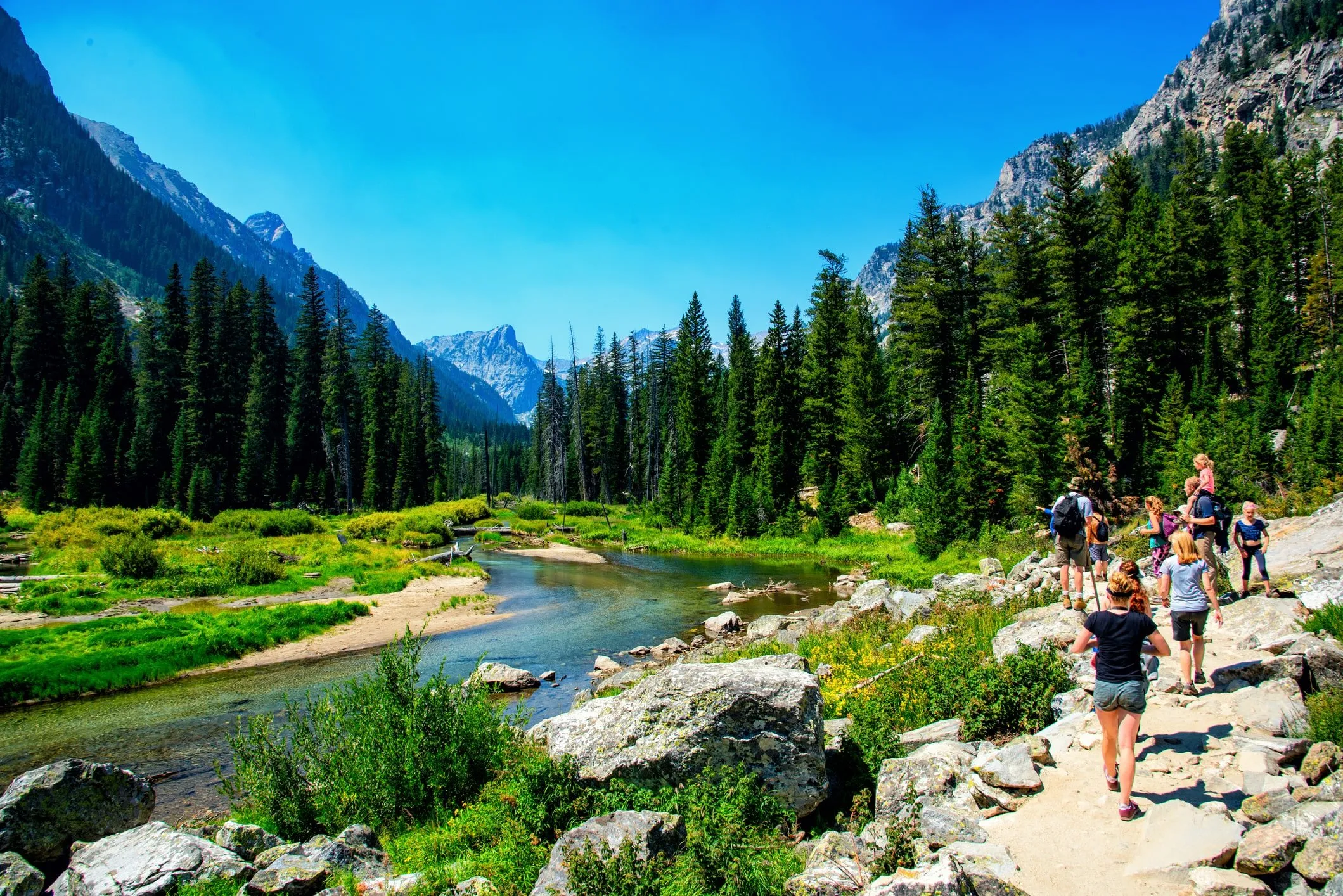
As we wrap up this comprehensive guide to hiking for beginners, I want to share something personal. That overweight, anxious 22-year-old who reluctantly followed a friend onto a trail has now guided thousands of people through their first outdoor experiences. The transformation didn't happen overnight – it began with a single step onto a simple path.
Your hiking journey doesn't require perfect fitness, expensive gear, or months of preparation. It requires curiosity, a willingness to start small, and respect for the natural world. Every expert hiker has stood exactly where you are now, wondering if they're ready, if they have the right gear, or if they'll enjoy the experience.
Your Next Steps for Hiking Success
- Choose your first trail using the criteria we discussed
- Gather essential gear starting with proper footwear
- Plan your trip including weather check and safety protocols
- Start your adventure with realistic expectations and an open mind
- Reflect and plan next steps based on your experience
The hiking community is incredibly welcoming to newcomers. We've all been beginners, and most experienced hikers are eager to share knowledge and encouragement. Don't be afraid to ask questions, join local hiking groups, or seek guidance from outdoor retailers and park rangers.
Remember, hiking for beginners isn't about conquering mountains or proving your toughness. It's about discovering the profound peace that comes from moving through natural spaces at a human pace, breathing fresh air, and experiencing the world beyond screens and schedules.
Continue Your Journey
Ready to take the next step? Explore our comprehensive resources for outdoor enthusiasts:
The trails are waiting, and your adventure is just beginning. Trust yourself, start small, and prepare to discover not just beautiful landscapes, but also reserves of strength, peace, and joy you never knew you possessed. See you on the trail!
Start Your Hiking Adventure Today
Join thousands of satisfied adventurers who began their journey with Nature Guests
Explore More Guides
